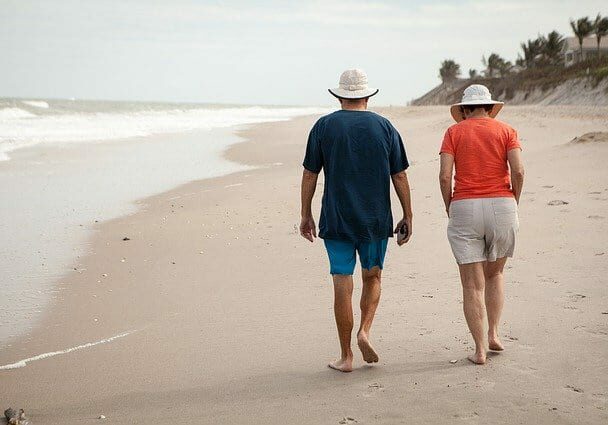
To be eligible, you must prove that you have a stable source of passive income. These funds can come from pensions, real estate, transferable equity, intellectual property, or financial investments.
Established by the Portuguese government in 2007, the D7 Visa Portugal is a pathway to obtaining a permanent residency permit. In the long run, it can be the first step in attaining Portuguese citizenship and a Portuguese passport.
Navigating the intricacies of the D7 Visa application process can be complex, given its bureaucratic nature and the need for careful planning. That’s why hiring the services of a Portugal D7 Visa lawyer is invaluable in streamlining this journey. These experts guide you through the process, provide insights into eligibility criteria, and address any queries you may have.
This article provides useful information and guidance on hiring a consultant for the D7 Visa.
Why work with an immigration lawyer for your D7 Visa application?
Immigration law services are professional individuals or an entire law firm providing legal advice, handling procedures, and submission services. Experienced immigration lawyers can benefit you and your family looking to secure a residence permit in Portugal.
Aside from the obvious benefits of having an experienced lawyer in your corner, they can be particularly useful in certain circumstances.
Suppose you are thinking about working with immigration lawyers in your home country. In that case, we recommend that you instead work with local Portuguese lawyers who know Portuguese law well and speak Portuguese.
Enlisting the help of a law firm with experience in dealing with D7 Visa applications is a good idea if you:
- Don’t have the time or patience to navigate past Portuguese bureaucracy and the country’s legal system
- Don’t speak Portuguese
- Want to avoid the common pitfalls of making a poor investment in Portugal that could cost you your visa
- Prefer to let an experienced D7 Visa lawyer guide you forward, helping you with the paperwork requirements and contracts
- Want to avoid making a mistake in documentation which can result in the rejection of your visa application
The Role of a Lawyer in the D7 Visa Application Process

Assist with application preparation: D7 Visa lawyers can help you prepare all the necessary documentation for your application. This includes gathering personal information, financial statements, and proof of passive income. They can also ensure that your application is completed correctly and under Portuguese immigration law.
Review and revise documents: D7 Visa lawyers can review your application documents carefully to ensure they are complete, accurate, and compliant with all immigration requirements. They can also identify any potential issues or inconsistencies and guide you through rectifying them.
Draft application forms: D7 Visa lawyers can draft the required application forms for you, ensuring they are filled out correctly and accurately. They can also help you translate the forms into Portuguese if necessary.
Apply to immigration authorities: D7 Visa lawyers can submit your application to the Agency for Integration, Migration, and Asylum (AIMA) immigration authorities on your behalf and track your application status.
Representation at interviews: In some cases, D7 Visa applicants may be required to attend an interview with AIMA. A D7 Visa lawyer can represent you at the interview and provide legal advice and support throughout the process.
Negotiate with immigration authorities: If your application has any issues, your D7 Visa lawyer can negotiate with immigration authorities to resolve them and represent your appeals if they are rejected.
Provide ongoing support: D7 Visa lawyers can provide ongoing support throughout the application process and beyond. They can answer your questions, provide guidance, and ensure that you know of any changes to Portuguese immigration law that may affect your visa status.
After five years with a D7 Visa, you can apply for permanent legal residence provided you meet certain conditions. In the long term, immigration lawyers can also assist applicants in becoming Portuguese citizens.
How to Choose a Lawyer to Work on your D7 Visa Application
When looking for a lawyer to work with, you should choose one that specializes in D7 Visa applications and has a high success rate.
At Global Citizen Solutions, our Portugal D7 Visa lawyers can help you lodge your application, taking you through legal loopholes and ensuring the best possible chance of a successful outcome.
How can our immigration lawyers help?
Global Citizen Solutions is a multidisciplinary firm that offers bespoke residence and citizenship solutions in several European countries, including Portugal. Our Portugal office provides legal expertise and assistance for foreign nationals, investors, and Golden Visa applicants.
Our immigration attorneys help the expat communities in Portugal with legal consultation and representation in the visa application process.
Portugal D7 Visa Benefits
The Portuguese Retirement Visa (D7) offers several benefits to qualifying individuals, including:
The ability to live and work in Portugal
The D7 Visa is a residency visa, which means that it allows individuals to live in Portugal permanently. This is a significant benefit for many people, as it allows them to relocate to a new country and start a new life.
D7 Visa holders are also allowed to work in Portugal without restrictions. This means they can start a business, work for a Portuguese company, or be self-employed. This is an excellent opportunity for entrepreneurs and professionals who want to live and work in Portugal or become a Portuguese citizen.
Access to the Schengen Area
The D7 Visa also gives holders access to the Schengen Area. This means they can travel freely within the 26 European countries in the Schengen Area. This can greatly benefit people who want to explore other parts of Europe without applying for a separate visa.
A path to a Portuguese passport
After five years of legal residency in Portugal, D7 Visa holders can apply for a permanent residence permit and Portuguese citizenship. This can be a great opportunity for people who want to gain residence permits and settle permanently in Portugal. A successful application allows them to enjoy the same rights as all other Portuguese citizens.
Portugal Passive Income Visa Requirements
To be eligible for a temporary residence permit on the D7 visa, you must meet the following criteria: be obliged by Portuguese and immigration law and meet the requirements for your residency visa. The following eligibility criteria apply to the primary residence permit holder and immediate family members.
D7 Visa eligibility
- Be a non-EU citizen
- Have a valid passport
- Be in good health
- Have health insurance in Portugal
- Clean criminal record (issued in the last 90 days)
- Have a regular and sufficient passive income source (equal to the monthly minimum wage in Portugal, which is €820)
- Have sufficient financial resources to support yourself in Portugal
- Have accommodation in Portugal
- Have a Portuguese bank account
Passive income visa requirements
- Minimum annual income: €9,120 per year (roughly $9,813.12), which is equal to the Portuguese minimum wage for the main applicant
- Additional dependents:
Spouse/partner: 50 percent of the main applicant’s income (minimum €4,560 per year)
Each dependent child: 30 percent of the main applicant’s income (minimum €2,736)
- Income source examples: such as pensions, real estate investments including rental income, dividends, intellectual property, investments
- Proof of income: such as bank statements, tax returns, investment documentation
Required Documents for a D7 Visa

Two passport photos: The photos must be recent, passport-sized, and meet specific requirements outlined by the Portuguese authorities.
Proof of accommodation: While you don’t necessarily have to buy property to qualify for the visa, you will need to provide proof that you have secured accommodation in Portugal. You can prove this with documents such as a rental agreement, property purchase deed, or hotel reservation.
Proof of health insurance coverage: You must have private health insurance that covers you for the entire duration of your stay in Portugal.
Proof of sufficient funds: You must prove that you have sufficient income to support yourself in Portugal. This could include bank statements, tax returns, pension statements, or investment documentation. The minimum income requirement for a D7 Visa is €9,120 per year for the main applicant, plus 50 percent of an accompanying spouse and an additional 30 percent per accompanying child.
Criminal record certificate: You must provide a criminal record certificate from your home country and any other countries you have lived in for more than six months in the past year.
Completed D7 Visa application form: This form can be downloaded from the website of the Portuguese consulate or Portuguese embassy in your country. Make sure to fill it out carefully and accurately.
Additional documents
- Marriage certificate: If you are applying with your spouse, you must provide a marriage certificate.
- Birth certificates: If you are applying with children, you must provide birth certificates for each child.
Why choose Global Citizen Solutions for your D7 Visa?
Global approach by local experts
- GCS has offices located across Portugal.
- Members of the US-Portugal and UK-Portugal Chambers of Commerce in Portugal and the Investment Migration Council (IMC).
- Our expert team can help you secure your visa or residence permit throughout your journey.
100% Approval rate
- Our successful track record in applications provides reassurance to applicants.
- We have helped clients from more than 35 countries secure residency in Portugal.
Comprehensive solution
- With a single communication channel, our approach ensures you have complete clarity on your application.
- Our BeGlobal® Onboarding System allows for a total flow of information.
Transparency and privacy
- Our Portugal D7 Visa lawyer cost is clear and detailed.
- All data is stored within a GDPR-compliant database on a secure SSL-encrypted server.

Frequently Asked Questions about Passive Income Visa Lawyers
Can an immigration lawyer help to set up a Portuguese bank account?
Immigration lawyers can provide foreign citizens with general guidance on opening a Portuguese bank account, but they cannot directly assist with the account opening process. They can refer you to Portuguese banks or financial institutions with experience with foreign clients and help you navigate the account opening process.
Foreign citizens can only utilize certain banks to open a Portuguese bank account. You can also visit your local Portuguese consulate to discuss your D7, family reunification visa or your permanent residence permit.
How can an immigration lawyer help me to get a Portuguese residence permit?
An immigration lawyer can help you to get a Portuguese residence permit following your D7 Visa application.
They can also help you to update and renew your residence permit. Additionally, they can provide legal services, general guidance, and support throughout the process, reduce the risk of errors, improve your chances of success, and give you peace of mind.
What are the minimum income requirements for a D7 Visa?
Obtaining a D7 Visa in Portugal necessitates meeting specific income requirements. The minimum annual income needed varies depending on who is applying under the same visa.
The primary applicant must demonstrate a regular and sufficient passive income of at least €9,120 per year (from intellectual property, dividends, income from real estate investments etc).
If your spouse or partner wishes to reside with you under the same D7 Visa, you must demonstrate that you have sufficient income to support them. This means providing evidence of income, translating to a minimum of €4,560 annually. Similarly, for each dependent child accompanying you, an additional 30 percent of your income is required, with a minimum of €2,736 per year for each child.
It’s important to remember that these are the minimum income thresholds. Presenting evidence of higher income can significantly strengthen your application and showcase your ability to comfortably support yourself and any dependents in Portugal. Additionally, these figures are subject to change, so it’s crucial to verify the latest requirements with Portuguese immigration authorities before applying to ensure you meet the current standards.
What are the alternatives to the Passive Income Visa?
If the D7 Visa doesn’t perfectly align with your circumstances or goals, several alternative Portuguese visas can provide you with the opportunity to reside in Portugal. Here’s a breakdown of some key alternatives:
D2 Entrepreneur Visa: This option caters to individuals establishing a business in Portugal and creating jobs. The D2 Visa requires actively running the business and demonstrating its positive impact on the economy.
D3 Visa (Cultural Activities): The D3 Visa is geared towards artists, professionals in cultural fields, independent researchers, and retirees actively participating in cultural projects or research in Portugal.
D8 Digital Nomad Visa: This relatively new option targets remote workers with stable remote employment and sufficient income. The Digital Nomad Visa allows these individuals to live and work in Portugal for extended periods.
Portugal Golden Visa: Focused on attracting foreign investment, the Portugal Golden Visa requires a significant investment in Portuguese companies or research funds. While offering a faster path to residency, it comes with a higher financial threshold.
Temporary Residence Visas: For shorter stays with specific purposes like volunteering or language immersion, various temporary visas may be suitable.
Student Visa: International students can obtain short-term and long-term study visas. The short-term visa is valid for three months, while the visa typically lasts one year and can be renewed for up to five years.
Family Reunification Visa: The Family Reunion Visa allows non-EU citizens with valid residency permits in Portugal to sponsor family members for residency. Eligible family members for family reunification include spouses, children (under 18 or dependent on the applicant), dependent parents, and siblings under specific circumstances. To qualify for a Family Reunification Visa, the sponsor must demonstrate sufficient income to support themselves and their dependents and meet other requirements set by the Portuguese immigration authorities.
Choosing the best alternative depends on your goals, income source, professional background, and desired level of commitment in Portugal. Each family reunification visa has eligibility requirements, application processes, and potential pathways to permanent residency or citizenship. It’s crucial to research each option thoroughly and consider seeking professional guidance from an experienced immigration lawyer to ensure you align your plans with the most suitable visa category.
Where can I find Portuguese immigration lawyers who speak English?
There are many English-speaking immigration lawyers in Portugal. At Global Citizen Solutions, we provide various services to domestic and international clients, and we have a team of experienced immigration lawyers fluent in English and Portuguese.
Whether you choose a law firm or Global Citizen Solutions, it’s easy to find an experienced immigration lawyer to help you.
Is the D7 Visa suitable for digital nomads?
Many digital nomads have successfully applied for the D7 Visa. It can be a good fit for those with a stable source of passive income that’s equal to the Portuguese minimum wage (€820 per month)
Alternatively, foreign citizens can apply for the Digital Nomad Visa (D8 Visa). It was launched by the Portuguese government in October 2022. This is effectively a work visa for remote workers with a work contract who are able to do their job remotely – the difference is that holders are actively earning and working. In contrast, the D7 relies on a passive income such as retirement income, existing real estate, or shares.
What is a Portugal residence permit?
A residence permit allows non-EU/EEA citizens to live in Portugal legally. You’re granted a residence permit through any of the D-visas. Under Portuguese law, to maintain your residence visa, you must meet all the requirements of your residence permit. After five years, you can apply for permanent residency or citizenship.
Enquire at Global Citizen Solutions or your local Portuguese Consulate about immigration law, permanent residency, and obtaining Portuguese citizenship.


